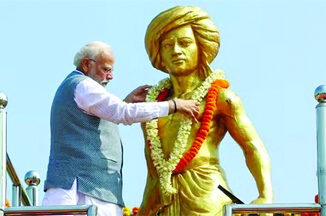Iranian missile strikes on terror bases in Balochistan have triggered a fierce retaliation from Pakistan, which targeted purported terrorist hideouts in Iran’s Sistan-Baluchestan province on Thursday. The Inter-Services Public Relations, the Pakistan military’s media wing, stated that hideouts used by two Baloch terrorist organizations were ‘successfully struck in an intelligence-based operation’. It said Pakistan’s armed forces were in a perpetual state of readiness to ensure the safety of its citizens against acts of terrorism. According to Pakistan’s Foreign Office, Islamabad has been sharing its concerns with Tehran about the havens for Pakistan-origin terrorists in Iran, but to no avail.
The tit-for-tat attacks are a new low in the relations between Iran and Pakistan. Ironically, both nations — notorious for harboring or supporting terrorists as well as militia groups — are playing the victim card. They are desperately trying to make the international community buy their argument that they are more sinned against than sinning. Undoubtedly, Iran and Pakistan have been scorched by terrorism at times, but the onus is on them to first set their own house in order. Collaborative efforts are needed to fight the ‘snakes in the backyard’, which have started biting the very hand that fed them.
Terrorism is a global threat requiring a multilateral, multipronged strategy. Unilateral actions by Tehran and Islamabad are adding fuel to the raging fire in West Asia. The wider the conflagration spreads, the worse it will get for peace and economic progress in the region. Commenting on the Iranian strikes, India has said that it understands actions that countries take in self-defense, while reasserting its ‘uncompromising position of zero tolerance’ to terrorism. New Delhi should make it a point to condemn terrorism unequivocally, no matter which country sponsors it. At the same time, it is vital to emphasize the importance of diplomatic parleys for defusing tensions.
(Tribune, India)





Be the first to comment